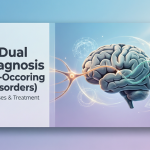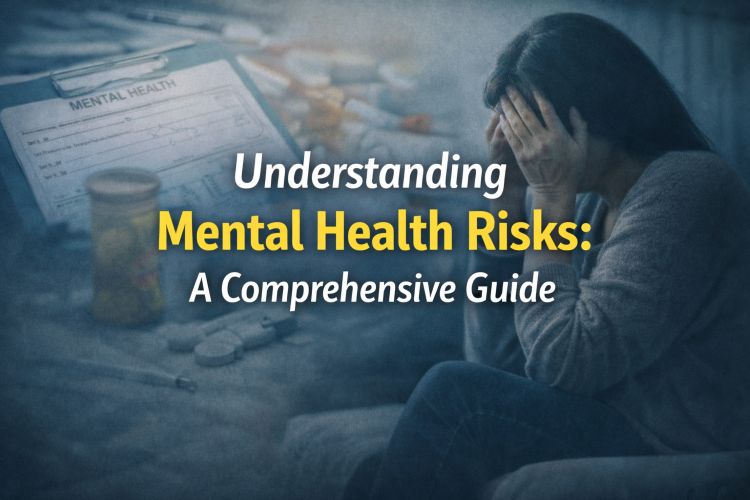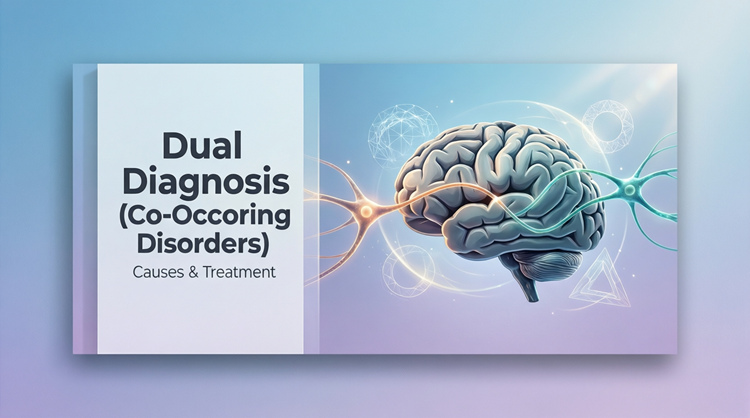It seems people facing extreme mental health difficulties have nowhere to seek refuge. Mental healthcare in inpatient settings gives patients crucial intensive medical care along with necessary support to stabilize their condition before starting recovery. Understanding the basics of inpatient mental health care, either as an individual option or through loved ones’ care will transform your life perspective.
This article explores the definition of inpatient mental health treatment and its appropriate client population while outlining treatment modalities found in mental health inpatient facilities along with potential benefits of this intervention approach.
What is Inpatient Mental Health Treatment?
The provision of continuous intensive medical care for mental health takes place within structured facilities that maintain safety for patients. Inpatient mental health treatment conducts 24/7 full-time treatment of individuals at a facility since patients must remain inside the treatment center throughout the entire program.
Incidental mental health facilities depend on teams comprising psychiatrists combined with psychologists as well as licensed therapists along nurses, and other mental health professionals for their staff. Mental health inpatient facilities work to stabilize patients during a crisis before effectively managing symptoms to build stability for future recovery.
Patients typically start their mental health facility stay through a detailed evaluation process. The evaluation process allows treatment teams to create customized care strategies that address patients’ current crisis alongside their fundamental mental health disorders. Patients who seek care at mental health inpatient facilities receive treatments that consist of:
- 24/7 medical supervision and psychiatric care
- Individual and group therapy
- Medication management
- Psychoeducation
- Crisis intervention
- Holistic therapies like art, music, or recreational therapy
An inpatient care mental health program lasts for diverse periods for each patient. Some patients require up to a few days of intensive stabilization but other patients need extended program durations for achieving long-term progress.
Who is Inpatient Mental Health Treatment For?
Medical staff recommend inpatient mental health treatment as a proper option when outpatient therapy cannot manage serious symptoms safely. Knowing your mental health condition profile or the condition of someone close to you requires information for proper care selection.
Inpatient mental health care proves suitable when patients experience the following circumstances:
1. Individuals Experiencing a Mental Health Crisis
Inpatient mental health facilities create safe containment for people at risk of endangering themselves or others as their primary protection measure. Immediate attention through structured support methods should be provided when someone displays suicidal thoughts in combination with self-harming behaviors or aggressive outbursts.
2. Those with Severe Psychiatric Symptoms
Mental health inpatients reside in secure locations to ensure the safety of those who put themselves or others at risk, according to their main protection approach. People exhibiting suicidal ideation together with self-injuring conduct or violent conduct must receive fast structured support intervention.
3. Individuals Requiring Medication Management
Some patients need close oversight from professionals when seeking their appropriate medication combination. Staff participating in inpatient mental health treatment provides healthcare providers a dynamic environment to keep watch on medication effects and respond to side effects right away.
4. People Who Have Not Found Success in Outpatient Programs
Patients who do not show enough progress from outpatient therapy and medication treatment and partial hospitalization need admission to mental health inpatient facilities for more intensive care.
5. Co-occurring Disorders
Integrated dual-diagnosis treatment delivered through inpatient care mental health facilities provides the best results to treat individuals affected by mental health conditions and substance use disorder.
Recognizing these signs is vital. Deland Treatment Solutions exists to assist anyone who needs help with finding suitable treatment because they or someone they care about matches these descriptions.
100% Confidential Support is Available 24/7
No matter what you’re going through, you’re not alone. Our dedicated team is here to provide a safe, judgment-free space where you can talk openly and honestly. Whether you need emotional support, resources, or just someone to listen.
We’re here for you—completely confidential and always respectful of your privacy. Call us today!
Benefits of Inpatient Mental Health Treatment
A person must make a crucial decision about whether they need inpatient or outpatient mental health services due to overwhelming factors. The substantial benefits of inpatient services are particularly helpful when individuals require this type of critical care or multiple serious mental health problems need immediate attention.
Inpatient mental health facilities bring forth several essential benefits that patients should understand:

1. Immediate Safety and Stability
The most vital benefit of inpatient care for mental health is the instant safety that patients receive. A secured and monitored facility serves as protection for patients against any form of self-inflicted injury or harm to others. The all-day-and-night care team members receive training to manage clinical emergencies and perform quick interventions.
2. Comprehensive, Holistic Care
The recovery process at mental health inpatient facilities integrates complete patient care. These facilities handle both acute symptom control and comprehensive patient health improvement. The standard treatment approach provides patients with nutritional advice along with exercise recommendations and mindfulness techniques combined with creative therapy while utilizing standard psychotherapy care.
3. Access to Intensive Therapy
The frequency, along with the intensity, of Therapy delivered in inpatient mental health settings exceeds what outpatient care provides. The therapeutic activities available for patients include both individual therapy sessions and multiple group sessions alongside family therapy as needed. Therapy sessions over repetitive periods provide fast results and enable patients to create essential self-help abilities.
4. Focused Environment for Healing
Individuals under mental health inpatient care achieve better recovery because they get complete focus by leaving their everyday stressors behind. The environment allows patients to escape outside distractions while they engage in deep reflection, which promotes their recovery process.
5. Peer Support
The commune is formed when people from similar situations come together, creating understanding along with community support. Shared peer support group activities, along with teamwork events, work to reduce social isolation and build empathy between participants while growing their sense of hope.
6. Expert Medication Management
Expert oversight for medications in inpatient mental health care settings is assured by psychiatrists and nurses. Psychiatrists and nurses track medication responses through careful monitoring and adjust prescriptions accordingly, enabling patients to better maintain their treatments.
7. Smooth Transition to Outpatient Care
Mental health inpatient treatment providers begin working with patients after stability to create a thorough aftercare plan. Mental health treatment providers establish sustained progress through outpatient services and community support groups or medication follow-up after hospital patients receive discharge.

Conclusion
Mental health inpatient care provides people with dangerous psychological conditions an essential, lifesaving therapeutic model. Mental health inpatient facilities provide vital structures of care that help stabilize recovery and begin the process of healing for people facing mental health emergencies or severe psychiatric symptoms alongside dual diagnoses.
Health care programs run under inpatient mental health settings provide essential round-the-clock medical oversight together with intense therapy along with a nurturing environment to deliver the comprehensive treatment people need for healing and growth. The individual circumstances decide between outpatient and inpatient mental health care but inpatient treatment delivers sought-after concentrated care for therapeutic support needs.
Soon after starting at Deland Treatment Solutions, we discovered that individuals seeking assistance will discover that this process can be challenging yet critical toward their healing process. Each member of our team provides guidance throughout your journey with expert knowledge while showing concerned understanding. Call us at (386) 866-8689 today to start receiving the assistance you have earned before taking your first step toward betterment.





















